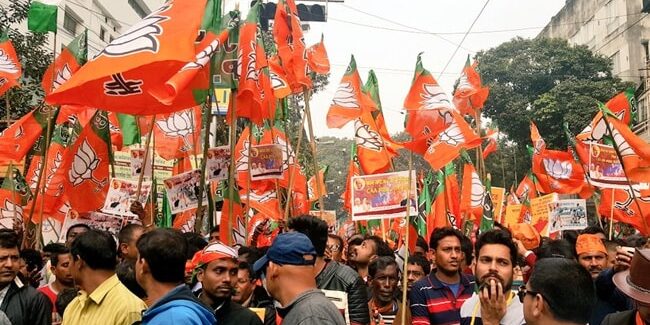INTRODUCTION
Welfare state is a social system, in which a government is responsible for the economic and social welfare and justice of its citizens. It is also responsible for formulating the policies to provide free healthcare, money for people without jobs, etc.
A welfare state is based on the principles of equality of opportunity, equitable distribution of wealth, and public responsibility for citizens unable to avail themselves of the minimal provisions of a good life.
THE STATISTICS
According to the ILO’s World Employment Social Outlook Report, the unemployment rate in India has been in the 3.4% to 3.6% range over the UPA- government led 2009-2014 and the NDA-government led 2014-2019 periods.
The number of unemployed persons in India decreased to 44.85 Million in 2016, from 48.26 Million in 2014. Unemployed persons in India averaged 30.6 Million from 1971 until 2016, reaching an all-time high of 48.20 Million in 2014 and a record low of 5.10 Million in 1971. According to Centre for Monitoring Indian Economy(CMIE) data, India’s unemployment rate remained high for the month of November, 2019, at 7.48% amid lowest labor participation rate of just 42.37%.
It is a matter of concern that on one side, government has miserably malfunctioned to act as ‘welfare state’ for a large majority of citizens, by not providing employment opportunities to well-qualified young people. On the other side , it has been acting as ‘welfare state’ for almost 10% of citizens, who are either government employees or politicians by giving them handsome salaries and lifelong retirement benefits. According to a government notification, the families of government employees dying after serving less than seven years will get enhanced pension.
Whereof a government servant who died within 10 years before the 1st day of October, 2019, without completing, continuous service of seven years, his family shall be eligible for family pension at enhanced rates in accordance with sub-rule(3) with effect from the 1st day of October, 2019, subject to fulfilment of other conditions for grant of family pension,” said the Notification. President Ram Nath Kovind approved the amendment to the Central Civil Services(Pension) Rules, 1972.
The procedure of granting life-long pension and retirement benefits, family pension to the legislators is most sinister policy. And we call our country a “WELFARE STATE”!
APEX COURT DECISION
An NGO ‘Lok Prahari’ had approached the Supreme Court in PIL claiming that pension and other perks being given to Members of Parliament even after demitting office were contrary to Article 14 of the Constitution. The petition had raised several questions including how the MPs could themselves determine their salaries and perks.
It is very interesting to note that during the arguments, S.N. Shukla, general secretary of the petitioner NGO ‘Lok Prahari’ claimed that 82% of the MPs were ‘crorepati’. He also pointed that the taxpayers cannot be trammeled with paying pension to former MPs and their family members. The bench said, “Let the taxpayers vote them out. Let them do it. We cannot stop them. You are making grand statements. Should we go into the data of how many bureaucrats are ‘crorepatis’? Should we go into it? It is not permissible for us to go into this kind of debate.”
The provisions of Central Pension Rules state that a person is eligible to obtain pension only after experience of at least twenty years in respective department. The government servants are legally entitled to receive their pensions on the basis of their rendered services. Their spouses could draw the same after their death in a welfare State.
But pensions to the politicians could not be justified. The elected politicians claim their eligibility on the ground that they had been in ‘social service’. There are a lot number of persons who remain in social service in each society but all of them could not get pensions, unless they are elected to some kind of Legislative Houses.
The provisions of handsome amount of pension for government employees and lawmakers is absolutely discriminatory. It is the unjustified claims on the gullible taxpayers. It is an ‘unfair gain’ for the beneficiary and ‘unfair loss’ to taxpayers.








